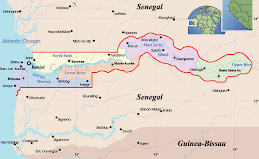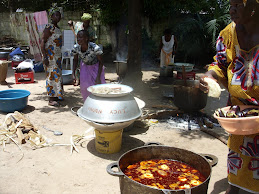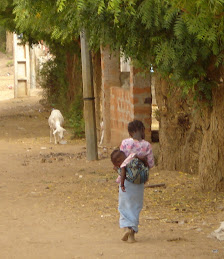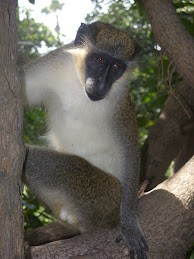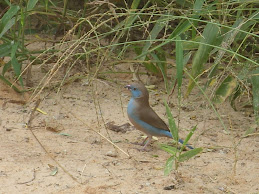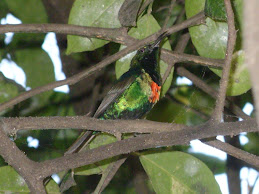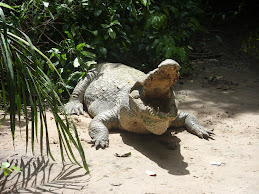After lunch and a rest we were taken by pirogue out to James Island with oversized life jackets for Bradley and Abigail. We were entertained by a drummer come singer who had us joining in asking us our Gambian names and then adding this into his lyrics as we all clapped along. On exiting the pirogue the island seemed quite small this we were later told was due to erosion and was much larger centuries ago, a small model was in place to show us this. Our tour guide briefed us on the history of James Island which was used as a prison for slaves before embarking on a long voyage over seas, of which the women were often raped as months later they were then sold with child. We had a walk around the ruins seeing dungeons where the stronger male slaves would have been shackled to prevent them from escaping, an area where the slaves were branded, and small rooms where up to 200 slaves would have been kept. Very thought evoking to think we used to trade in human life this way banishing them to different unknown countries never to see their families again.
The entertainer gave me a handful of small black, terracotta and blue beads which he had picked up of the beach saying these would have been necklaces worn by the slaves, I have kept these as a memento of our visit. We exited the Island by pirogue reflecting on our visit with the entertainer singing Bob Marley’s ‘No Women, No Cry’, quite funny, but good choice of song for the tourists. Had to climb up a pair of ladders from the pirogue to the jetty and I was again met by Maria ready and waiting to hold my hand. Back at the hotel we ate dinner and then I had an early night as didn’t sleep much the previous night as very, very hot also I could feel the mosquito’s biting so took shelter under my net.
The entertainer gave me a handful of small black, terracotta and blue beads which he had picked up of the beach saying these would have been necklaces worn by the slaves, I have kept these as a memento of our visit. We exited the Island by pirogue reflecting on our visit with the entertainer singing Bob Marley’s ‘No Women, No Cry’, quite funny, but good choice of song for the tourists. Had to climb up a pair of ladders from the pirogue to the jetty and I was again met by Maria ready and waiting to hold my hand. Back at the hotel we ate dinner and then I had an early night as didn’t sleep much the previous night as very, very hot also I could feel the mosquito’s biting so took shelter under my net.














